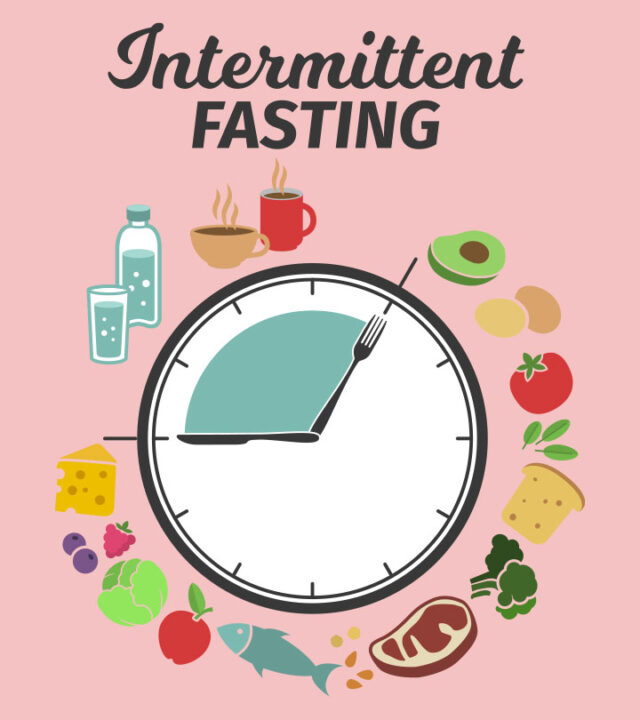We, living in the 21st century, are always bombarded with trends. Trends related to fashion, styling, eating, behaving, socializing, and much more. As and when trends keep coming, we are the first ones to try them without researching much about its pros and cons, and how it might affect us.
A recent trend that’s catching everyone’s attention is “Intermittent Fasting”. On social media, you must have seen a lot of people speaking about it. Listening to them, we too get excited to try our hands on it thinking that it will yield similar results.
But I feel bad to reveal that it doesn’t work wonderfully for all, especially for women, a new study has discovered. Let’s unravel the mystery.
But First, What Is Intermittent Fasting?
Intermittent fasting is a sort of diet in which you avoid consuming calories for a certain duration, mainly 12 to 40 hours. During the fasting period, you can consume water and other calorie-free beverages but refrain from eating solid food items and drinks that contain calories.

For instance, you have breakfast at 10 am on Friday and then you fast for 24 hours, i.e., till 10 am on Saturday and then break the fast. However, these long fasting periods are suggested for those who have been dieting and following the diet for a longer period of time.
For beginners, the fasting period is usually small and later expanded based on how it works for their bodies. There are various techniques within intermittent fasting that one can try.
What Does The Research Suggest?
A study was conducted on intermittent fasting and published in the journal, “Obesity”. The research was conducted on a group of pre and post-menopausal, obese women. The research was led by Krista Varady, a professor of nutrition at UIC and her team observed the ladies for eight weeks. The women were instructed to follow the “warrior diet”, a technique of intermittent fasting.
One of the most popular techniques, the warrior diet is a technique that involves eating raw fruits and vegetables during the day, and at night, one can have a large meal. It specifies a four-hour window each day during which dieters may eat without counting calories before beginning the water fast until the next day.
Also Read: How Anorexia Could Change The Structure Of Your Brain!
The researchers then measured the hormone levels of those adhering to the diet and a controlled group of women who weren’t on any dieting restrictions. After eight weeks, the team of researchers observed that the levels of sex-binding globulin hormone in the women who were dieting didn’t change. The globulin hormone is a protein that transports reproductive hormones around the body.
Even, testosterone and androstenedione, a steroid hormone used for making testosterone and estrogen also exhibited similar behavior.
However, Dehydroepiandrosterone or DHEA, a hormone that enhances ovarian function and egg quality, saw a 14% drop in their levels in both, pre-and post-menopausal women. Though the drop in DHEA levels is significant, the levels remained within the normal range by the end of the eight weeks.
Varady said, “This suggests that in pre-menopausal women, the minor drop in DHEA levels has to be weighed against the proven fertility benefits of lower body mass. The drop in DHEA levels in post-menopausal women could be concerning because menopause already causes a dramatic drop in estrogen, and DHEA is a primary component of estrogen.”
“However, a survey of the participants reported no negative side effects associated with low estrogen post-menopause, such as sexual dysfunction or skin changes,” she added.
She also said that as high DHEA levels are connected to the risk of breast cancer, a moderate drop can be considered beneficial as it can lower the risk of developing breast cancer.
The research also saw that women who followed intermittent fasting had lost 3% to 4% of their weight, while the control group, who weren’t dieting, didn’t lose any weight.
Is It Good Or Bad?
So, now the question is whether practicing intermittent fasting is good or not. Following the diet can help in weight loss as the study revealed and will also improve metabolic health. It will also lower the risk of breast cancer as it will drop the level of DHEA.
On the other hand, post-menopausal women should consult a doctor before practicing the diet as the study revealed that there is a drop in the level of estrogen, which naturally happens in the post-menopausal period and thus, it becomes a concern.

It is always suggested that one must consider a doctor or dietician before starting any kind of dieting. And if intermittent fasting doesn’t work for you, there are alternatives that you can consider.
One can go for a Keto diet which involves high fats, moderate proteins, and low carbohydrates. One can also follow the Mediterranean diet consisting of fruits, vegetables, cereals, and legumes, or the Paleo Eating Plan.
Always remember, every diet plan has certain pros and cons, and what might work for one doesn’t mean that it’ll work for others too. So, consult a doctor before starting a diet and observe if the diet isn’t affecting you much.
Image Credits: Google Images
Feature image designed by Saudamini Seth
Sources: Hindustan Times, Healthline, Wellness Hub
Find the blogger: Palak Dogra
This post is tagged under: intermittent fasting, fasting, dieting, diet plans, research, survey, studies
Disclaimer: We do not hold any right, copyright over any of the images used, these have been taken from Google. In case of credits or removal, the owner may kindly mail us.
Other Recommendations:
Is The Dieting Fad Of Intermittent Fasting More Helpful Or Harmful To The Body?


































